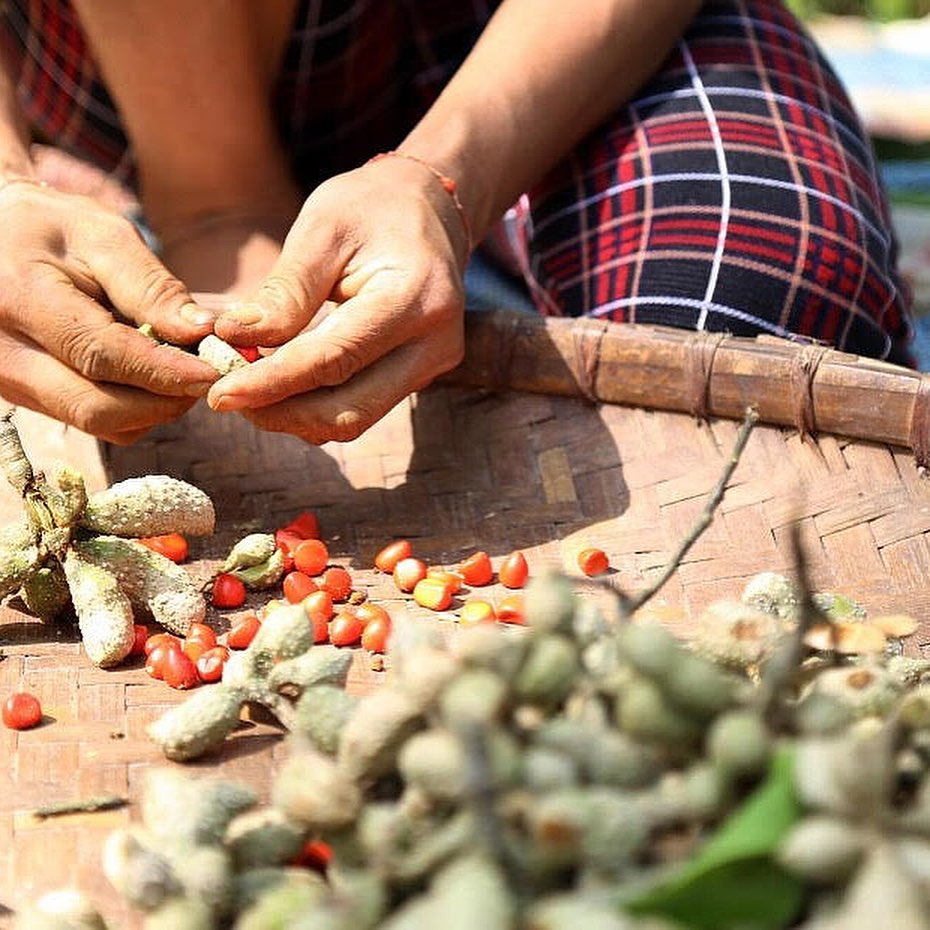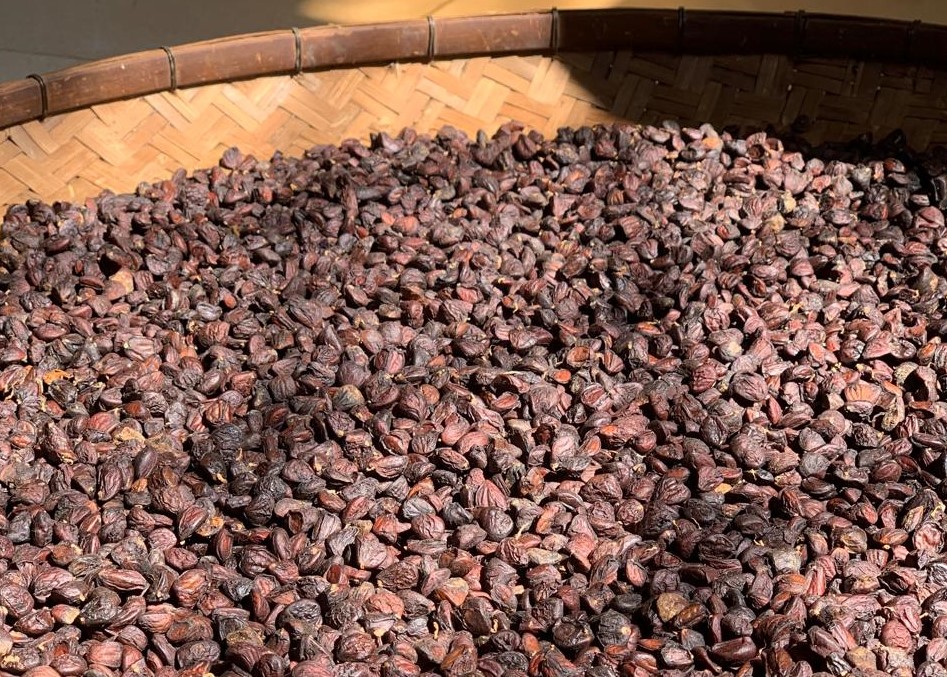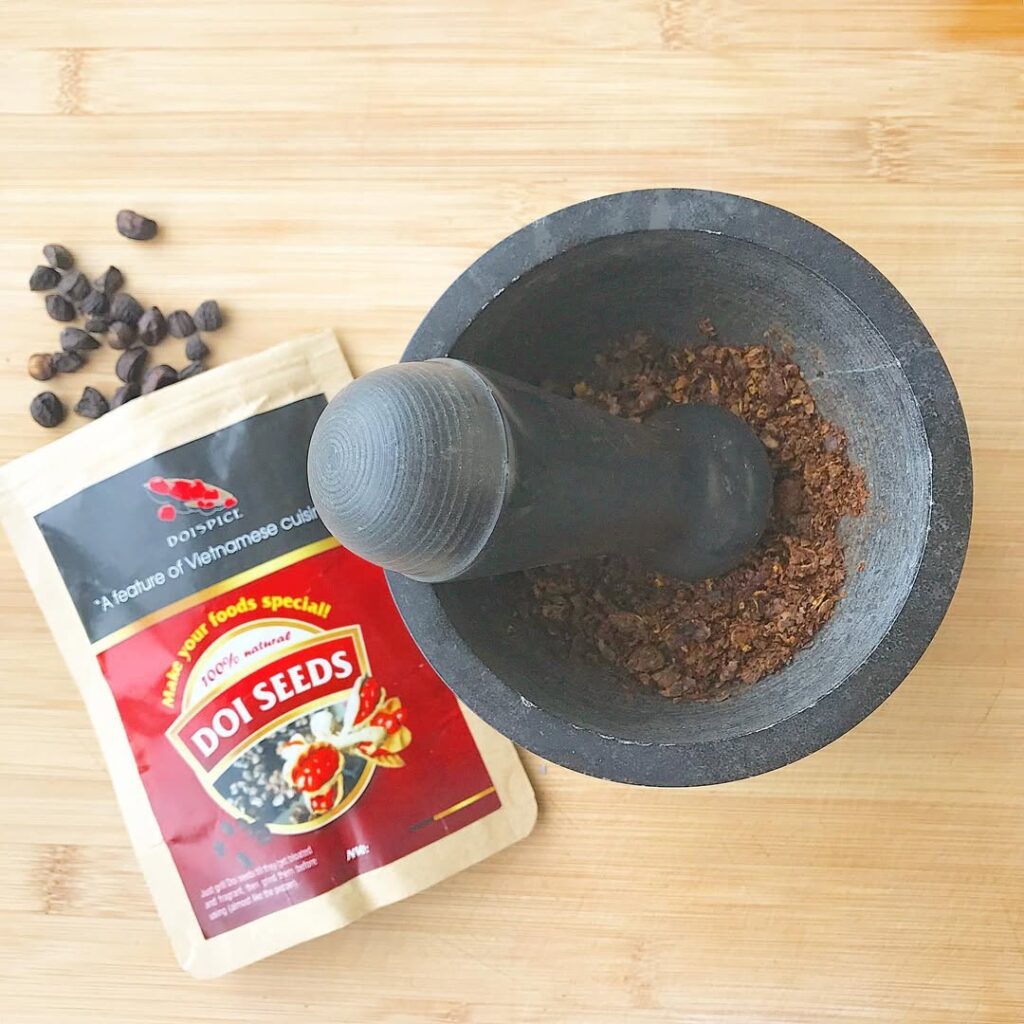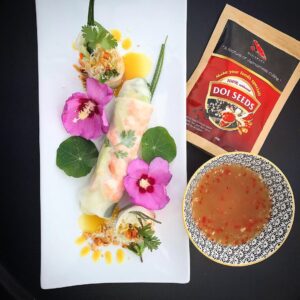A real gift of Nature
Vietnamese cuisine has been becoming more and more popular around the world and received a lot of admiration from various well-known international culinary experts. The first to mention is the late chef Anthony Bourdain, who accompanied the US President Barack Obama during his visit to Vietnam in 2016. He stated that “Going to Vietnam the first time was life-changing for sure. Maybe because it was all so new and different to my life before and the world I grew up in. The food, culture, landscape, and smell; they’re all inseparable”. Or the chef, the American Master Chef’s judge Gordon Ramsay once had to say that “I am just a bad cook in Vietnam”. However, there are still many things hidden from the world about the Vietnamese cuisine. Of which you will find a very unique spice, creating the culinary identity of an entire region, so precious that Vietnamese people call it “Black Gold”. It’s Doi seeds (or le Talauma). Now let’s explore this exotic spice.

Doi trees (or scientifically known as Michelia Tonkinensis A.Chev) are found in some Northwest provinces of Vietnam. They are woody, tall, upright plants with few branches and leaves. There are decades – or even up to century-old Doi trees of up to 30m height which produce excellent seeds. Doi seeds are harvested during September and November annually. The fresh seeds remain red, and turn black after getting dried under sunshine. Their taste is very specific and attractive as well. Their strong acridity and passionate fragrance will leave a long-life memory in anyone right from their first try. Doispice can be applied in different ways in preparing dishes, from baking, stir-frying, soup to preparing sauces. Just a few Doi seeds are enough to make your dishes special.

In addition to making spices, Doi seeds are also valued for medicinal elements. The high content of essential oil in Doi seed is very good for digestion and bone systems. The local people who grow Doi seeds usually chew and swallow a Doi seed whenever they get stomach ache; it is incredibly useful after only 15 minutes. People also use Doi seeds to make wine. They confirm that drinking Doi seed wine in moderation helps to ultimately reduce aches and pains in osteoarthritis and helps the body to be comfortable and move freely.

Recognizing the high economic potential of Doi seeds, the planting area of this exotic spice has been increasing over the years. Growing Doi trees is very easy because as a plant derived from the forest, this kind of tree develops so strongly mostly without any human help. So fertilizers, pesticides or chemicals were never used in growing Doi trees. The only difficulty is just time as a Doi tree needs to take 8 to 10 years to give the first harvest. But this will be adequately rewarded when top quality and completely natural Doi seeds will be sold at a high price which customers are pleased to pay when they know the spice they bought is just a real gift of Nature.
The world with Doi seeds
Many foreigners knew about Doi seeds, including two very famous French chefs Olivier Roellinger[1] and Didier Corlou[2], and “le petit prince des épices” (the little prince of spices) Rudy Smolarek[3] from Belgium. All of them are conquered by Doispice’s aroma and pungency that are totally different from everything they’ve ever tasted. Another swiss chef named Hermann Lienhard [4]already tried Doispice and had a very interesting assessment about it: “The taste is very deep and persistent, well suited to spice up many different dishes. You can give a dish with Doispice that certain something. Doispice reminds me of a spice bag with several different flavors. This is very attractive for many cooks”. Or more recently chefs like Owen Morrice[5] in Scotland, Giulio Bettini[6] in Italy and Daniel Watkins[7] in UK all said that Doispice is an incredible and very different spice. So that indicates Doispice is not only suitable for Vietnamese dishes but also can be a great ingredient in European kitchens.


The above perspective is completely possible when the demand for organic products has been increasing more and more in Europe, meanwhile European importers are very interested in contributing to sustainable development in developing countries. This opens up opportunities to export Doispice to Europe, a very strict market but always welcomes products consistent with their core values. Especially when The European Parliament recently ratified the EU – Vietnam Free trade agreement reflecting the huge confidence in a prestigious partner like Vietnam. If Doispice exportation could be implemented in the future, not only the local farmers’ life would be enhanced, but also the ecological environment would be improved with presence of verdant Doi forests where those trees are planted for seeds, not wood and will not be cut down like other short-term crops. How wonderful it would be to see the convergence between environmental protection and economic development.
For food lovers, spice is not only the catalyst for dishes, but also their “soul”, and even the culinary and cultural identity of a nation. In fact, there are spices that remind people of their original country such as Chinese Sichuan Pepper, Iranian Saffron Flower, Egyptian Samnah Butter, and Mexican Chili, Indian Turmeric, Turkish Yogurt, etc. And it’s great that Vietnam also has such a spice, that is Fish Sauce. And maybe someday, Vietnamese DOISEEDS would enter awareness of people around the world.
If you are interested in Doispice’s spices, please feel free to contact us via email: info@doispice.com or whatsapp: +84 965184358. Thank you!
[1] http://content.time.com/time/magazine/article/0,9171,2076587,00.html
[2] http://didiercorlou-hanoirestaurants.com/detail/5/
[3] https://lacuisineaquatremains.lalibre.be/2010/07/24/rudy-smolarek-lethnologue-des-epices/
[4] https://www.instagram.com/p/B1_X2_lH1qr/
[5] https://www.instagram.com/p/B4J1RBxFv0g/
[6] https://www.instagram.com/p/B1uEojvoC8_/
[7] https://www.instagram.com/p/B4sKF32Feys/


Wonderful beat ! I wish to apprentice while you amend your web site, how could i subscribe for a blog web site? The account aided me a acceptable deal. I had been a little bit acquainted of this your broadcast provided bright clear idea